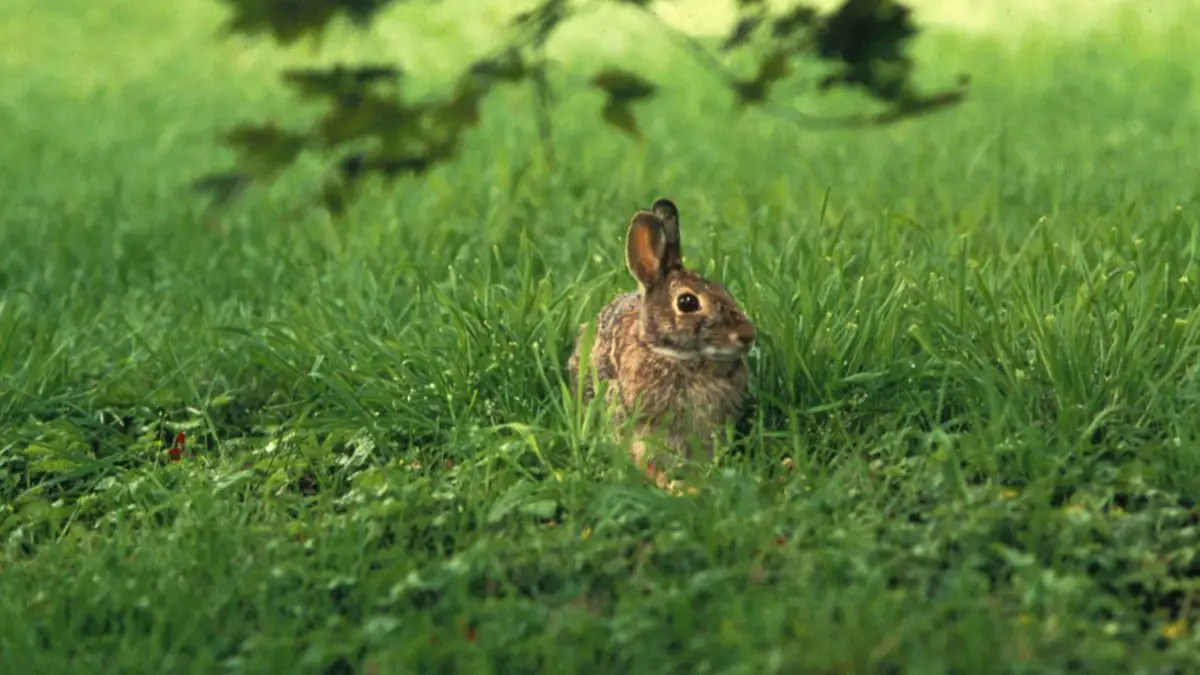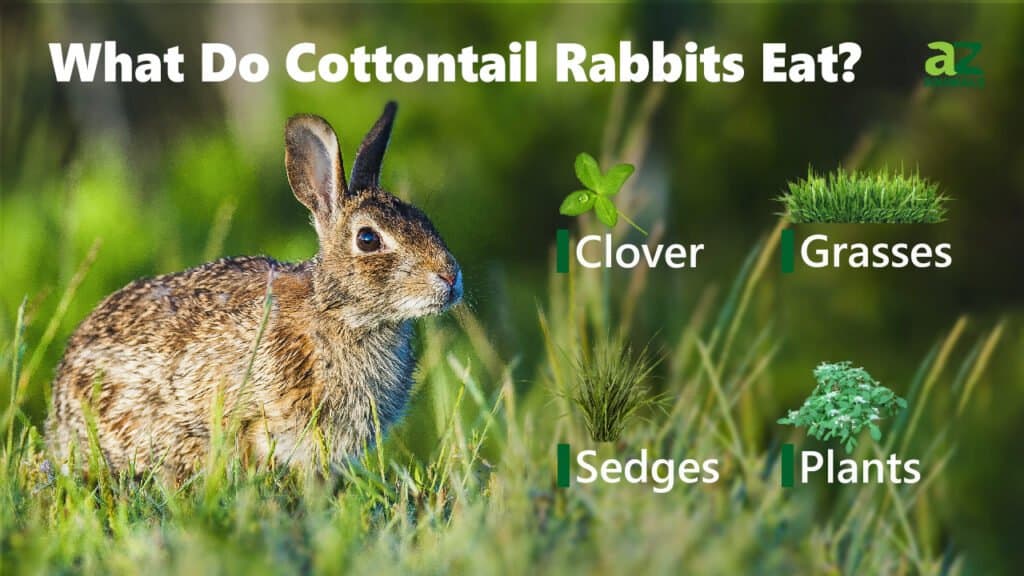Can You Eat Wild Rabbits

Yes, you can eat wild rabbits. In fact, rabbit is a popular game meat that is low in fat and high in protein. When cooking wild rabbit, it is important to remember that the meat is lean and will dry out quickly if overcooked.
For this reason, it is best to cook wild rabbit using methods that allow the meat to retain its moisture, such as braising or stewing.
- Find a wild rabbit
- This can be done by looking for them in their natural habitat or setting traps
- Once you have caught a wild rabbit, it is important to clean it properly
- This includes removing all the fur and intestines
- Cook the wild rabbit meat however you like
- Some popular methods include frying, roasting, or stewing the meat
- Enjoy your meal!
Dangers of Eating Rabbit Meat
Rabbit meat may be a relatively new addition to the American diet, but it’s been eaten for centuries in Europe and Asia. In recent years, as the popularity of rabbits as pets has grown, so has interest in rabbit meat. While rabbits are a lean, healthy source of protein, there are some risks associated with eating rabbit meat.
One of the biggest dangers of eating rabbit meat is the risk of contracting tularemia. Also known as “rabbit fever,” tularemia is caused by the bacterium Francisella tularensis. This bacteria is found in wild rabbits and can be transmitted to humans through contact with infected animals or their carcasses.
Symptoms of tularemia include fever, chills, headache, muscle aches, and fatigue; in severe cases, the disease can lead to pneumonia or even death.
Another danger associated with eating rabbit meat is salmonella poisoning. As with any type of poultry or mammal, there is a risk that rabbits may be contaminated with salmonella bacteria.
These bacteria can cause food poisoning in humans, leading to symptoms like diarrhea, vomiting, and fever. While most people recover from salmonella poisoning without lasting effects, some individuals may experience more serious complications like dehydration or blood infection.
Finally, it’s important to be aware that many commercial rabbit foods contain high levels of copper.
While copper is an essential nutrient for rabbits (and humans), too much copper can be toxic. Symptoms of copper toxicity include liver damage, anemia , and neurological problems . If you choose to feed your pet rabbit commercially prepared foods , make sure to select a product that contains low levels of copper .
How to Tell If a Rabbit is Safe to Eat
Are you thinking about adding rabbit to your diet, but not sure if it’s safe? Here’s how to tell if a rabbit is safe to eat:
The first thing you’ll want to do is check the quality of the meat.
Look for any signs of spoilage, such as discoloration or bad odor. If the meat looks and smells fresh, it should be safe to eat.
Next, take a look at the animal itself.
If it appears healthy and well-fed, there’s a good chance the meat will be safe to eat. However, if the animal looks sickly or malnourished, it’s best to avoid eating it.
Finally, check with your local wildlife authorities to see if there are any restrictions on hunting or trapping rabbits in your area.
If there are no restrictions, then you can be confident that the rabbit is safe to eat.
Risk of Eating Wild Rabbit Meat
There are many dangers associated with eating wild rabbit meat. The most common and dangerous danger is the risk of contracting Tularemia, also known as Rabbit Fever. This disease is caused by the bacteria Francisella tularensis, which is found in rabbits, hares, and rodents.
Symptoms of this disease include fever, chills, headache, muscle aches, joint pain, diarrhea, and vomiting. If left untreated, Tularemia can be fatal.
In addition to the risk of contracting Tularemia, there is also the potential for other foodborne illnesses when consuming wild rabbit meat.
These illnesses can be caused by bacteria such as Salmonella and E. coli. Symptoms of these illnesses include nausea, vomiting, diarrhea, abdominal cramps, and fever. Wild rabbit meat can also harbor parasites that can cause illness in humans if consumed.
Given the risks associated with eating wild rabbit meat, it is best to avoid it altogether. If you must eat wild rabbit meat, cook it thoroughly to kill any harmful bacteria or parasites that may be present.
Can You Eat Domestic Rabbits
Sure, you can eat domestic rabbits – but should you? Here’s what you need to know about this popular pet before you make the decision to add it to your dinner plate.
For starters, rabbits are very clean animals.
They groom themselves regularly and don’t typically carry any diseases that could be harmful to humans. However, as with any animal, there is always a risk of contracting something if you consume raw or undercooked meat.
Rabbits are also relatively low in fat and cholesterol, making them a healthier choice than some other meats.
And since they’re small animals, they don’t require nearly as much resources to raise as larger livestock like cows or pigs.
So if you’re considering adding rabbit to your diet, it’s definitely something that can be done safely and responsibly. Just be sure to cook the meat thoroughly, and as always, consult your doctor or nutritionist before making any major dietary changes.
Can You Eat City Rabbits
For those of us who live in cities, we often see wild rabbits running around. While these rabbits may look tempting to catch and eat, you should think twice before cooking one up for dinner. That’s because city rabbits are not typically healthy animals.
City rabbits generally don’t have access to the same kind of fresh food that rural rabbits do. They also tend to live in close proximity to humans, which means they’re more likely to come into contact with harmful chemicals and pollutants. All of this can make city rabbits unhealthy animals that are not safe to eat.
If you do happen to catch a city rabbit, it’s important to cook it thoroughly before eating it. This will help kill any potential bacteria or parasites that could make you sick. So if you’re ever tempted to take a bite out of a city rabbit, remember that it’s best to leave them be.

Credit: a-z-animals.com
Can You Get Diseases from Eating Wild Rabbit?
Yes, you can get diseases from eating wild rabbit. Some of the diseases that you can get include tularemia, salmonellosis, and leptospirosis. These diseases are typically acquired by consuming contaminated meat or water.
Symptoms of these diseases vary, but can include fever, diarrhea, vomiting, and muscle aches. If you suspect that you have contracted a disease from eating wild rabbit, it is important to see a doctor immediately so that you can receive treatment.
Is Wild Rabbit Healthy to Eat?
Yes, wild rabbit is healthy to eat. In fact, it is often considered a healthier alternative to domesticated rabbits because they are typically leaner and have less fat. Wild rabbits also tend to be more active than their domestic counterparts, which can help keep them in better shape overall.
Additionally, since they are not fed commercial pellets or other processed foods, they generally have a more natural diet that can be beneficial for your health.
What Months Can You Eat Wild Rabbit?
You can eat wild rabbit any time of year, but the best time to hunt them is in the fall and winter. During these months, the rabbits are more active and their fur is thicker, making them better insulated against the cold weather.
What Does Wild Rabbit Taste Like?
If you’re looking for a unique culinary experience, why not try wild rabbit? This lean, gamey meat has a slightly sweet flavor that pairs well with earthy root vegetables. When cooked properly, wild rabbit is tender and juicy.
If you’re new to cooking wild rabbit, start by marinating the meat in red wine overnight. This will help to tenderize the tough muscle fibers. When you’re ready to cook, roast the rabbit in a hot oven until the skin is crisp and golden brown.
Serve with roasted potatoes and carrots for a delicious autumnal meal.
Why don't they eat wild rabbits in Australia? They have millions of them! The reason is surprising…
Conclusion
Yes, you can eat wild rabbits, but you need to be careful about how you prepare them. If you cook them properly, they can make a delicious meal.
